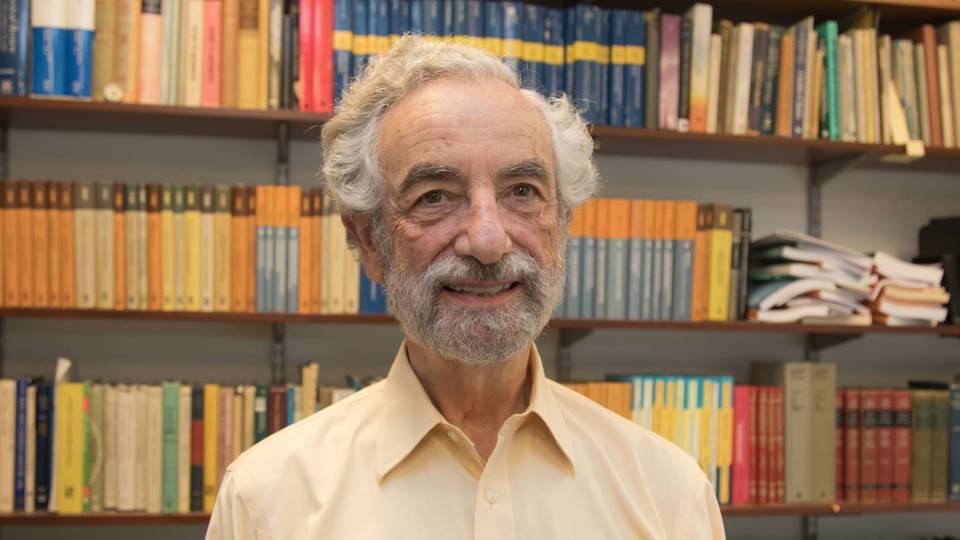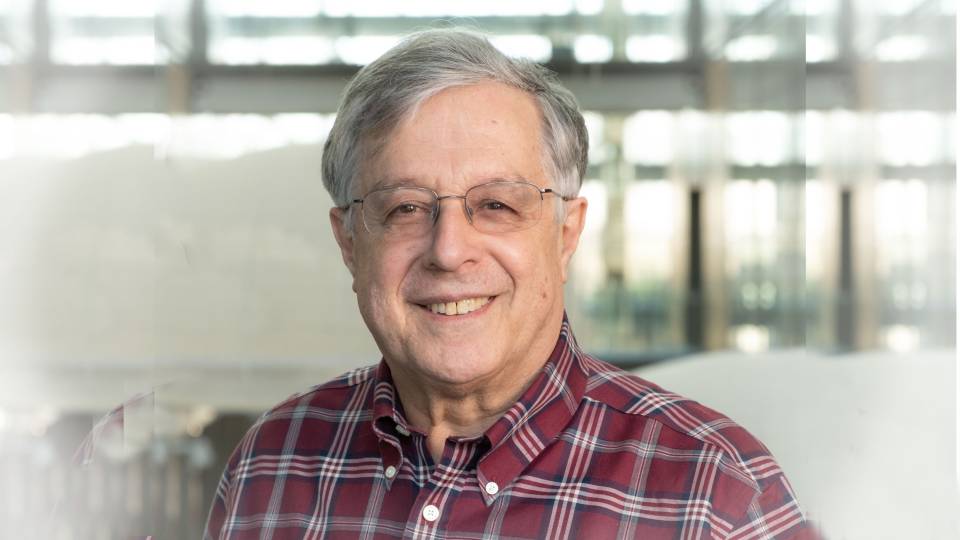Mathematical physicist Elliott Lieb has been selected to receive the 2022 APS Medal for Exceptional Achievement in Research for “major contributions to theoretical physics through obtaining exact solutions to important physical problems, which have impacted condensed matter physics, quantum information, statistical mechanics and atomic physics.”

Elliott Lieb
“Physics is a big enterprise with many people doing various things, being held together by a common interest in science,” said Lieb, Princeton's Eugene Higgins Professor of Physics, Emeritus, and an emeritus professor of mathematical physics. “It’s important to have scientific institutes like the American Physical Society that bring all this together.”
"This lifetime achievement prize is a big honor and recognition," said Herman Verlinde, Princeton's Class of 1909 Professor of Physics and chair of the department. "One could argue that it is comparable to a Nobel prize."
Awarded annually, the medal is the highest honor the American Physical Society bestows upon researchers across all of physics, recognizing contributions of the highest level that advance our knowledge and understanding of the physical universe in all its facets. Lieb will be recognized for his seminal contributions to several fields of physics at a ceremony during the APS Annual Leadership Meeting on Jan. 27.
“With this prize we recognize Elliott’s lifetime of accomplishments that have transformed physics,” said APS President-Elect Frances Hellman, who chaired this year’s selection committee. “It is a celebration of his dedication to scientific inquiry and pursuit of knowledge.”
Lieb is known for his rigorous mathematical approach to solving fundamental problems in physics. Among his hundreds of scientific publications is one of the most cited papers in condensed matter physics on the one-dimensional Hubbard model, published in Physical Review Letters in 1968.
Lieb is also known for his solution to the “square ice problem,” or the number of possible configurations of hydrogen atoms in a lattice of water molecules. This solution started a significant subfield in statistical mechanics. Some other major contributions include the strong subadditivity of quantum entropy, the Thomas-Fermi theory of atoms, the Lieb-Robinson velocity, the AKLT Spin Model and the Lieb lattice for ferrimagnetism.
Lieb obtained his bachelor’s degree in physics from the Massachusetts Institute of Technology in 1953 and his Ph.D. in mathematical physics from The University of Birmingham in 1956. He has held research and faculty positions at the University of Illinois, Cornell University, IBM, Yeshiva University and MIT. He has been a professor at Princeton since 1975, and he transferred to emeritus status in 2017.
“I will be delighted to honor Elliott with the APS Medal at our Annual Leadership Meeting in Washington, D.C., next month,” said APS CEO Jonathan Bagger. “His life and career have taken him across physics and around the world, yielding important discoveries at nearly every turn.”
Lieb's contributions have been recognized by many prizes and honors. He is a member of five national academies, including the National Academy of Sciences; he is a foreign member of the Royal Society in the United Kingdom; and he holds four honorary doctorates. He was twice president of the International Association of Mathematical Physics. For his work in physics he has been awarded the Boltzmann Medal, the Max Planck Medal, the Norwegian Onsager Prize and the Heineman Prize. The American Mathematical Society recognized him with the Birkhoff and Conant Prizes, and the Swedish Royal Academy awarded the Shock Prize. The Austrian government awarded him the lifetime Austrian Medal of Honor for Science and Art, which can be held by no more than 18 foreign scientists at any time.
In addition to the APS medal, Lieb will receive a $50,000 prize and a certificate citing his contribution, and he will give a talk at an APS March or April meeting. The prize is funded by a donation from entrepreneur Jay Jones.





